Best movies & TV Shows like Genroku Ryoran
A unique, carefully handpicked, selection of the best movies like Genroku Ryoran Starring Ken Matsudaira, Rie Miyazawa, Ryoko Shinohara, Hiroshi Abe, and more. If you liked Genroku Ryoran then you may also like: Kagemusha, The 47 Ronin, Harakiri, The Fall of Ako Castle, Hara-Kiri: Death of a Samurai and many more popular movies featured on this list. You can further filter the list even more or get a random selection from the list of similar movies, to make your selection even easier.
The 38th NHK Taiga Drama is Genroku Ryoran. The "Forty-seven Loyal Samurai" is one of the most enduring and best loved stories of Japan's history. Generations have grown up hearing the stirring tale of Oishi Kuranosuke, chief councillor of the Ako clan who leads his men through suffering and hardship to ultimately avenge their lord after he is unjustly forced to commit harakiri. NHK's 38th Taiga Drama "Genroku Ryoran" is the ambitious remake of this classic epic and boasts a cast that reads like a Who's Who in Japanese entertainment.
You may filter the list of movies on this page for a more refined, personalized selection of movies.
Still not sure what to watch click the recommend buttun below to get a movie recommendation selected from all the movies on this list
The 47 Ronin
In 1701, Lord Takuminokami Asano has a feud with Lord Kira and he tries to kill Kira in the corridors of the Shogun's palace. The Shogun sentences Lord Asano to commit suppuku and deprives the palace and lands from his clan, but does not punish Lord Kira. Lord Asano's vassals leave the land and his samurais become ronin and want to seek revenge against the dishonor of their Lord. But their leader Kuranosuke Oishi asks the Shogun to restore the Asano clan with his brother Daigaku Asano. One year later, the Shogun refuses his request and Oishi and forty-six ronin revenge their Lord.
Harakiri
Down-on-his-luck veteran Tsugumo Hanshirō enters the courtyard of the prosperous House of Iyi. Unemployed, and with no family, he hopes to find a place to commit seppuku—and a worthy second to deliver the coup de grâce in his suicide ritual. The senior counselor for the Iyi clan questions the ronin’s resolve and integrity, suspecting Hanshirō of seeking charity rather than an honorable end. What follows is a pair of interlocking stories which lay bare the difference between honor and respect, and promises to examine the legendary foundations of the Samurai code.
The Fall of Ako Castle
This is the story of "The Forty-Seven Ronin." Based on historical events in 1701-2, the movie tells the tale of the Asano clan's downfall and the revenge of its former samurai on the perpetrator of the catastrophe. Lord Asano was goaded, or tricked, into drawing his sword inside the Shogun's palace -- a crime which carried the death penalty. The newly installed Shogun was furious at Asano and ordered all his clan's assets seized, meaning some 20,000 samurai and commoners were unemployed and landless at a stroke. Forty-seven of these ronin (masterless samurai) banded together to take attempt revenge on Lord Kira, who had goaded Asano into drawing his sword.
Hara-Kiri: Death of a Samurai
A tale of revenge, honor and disgrace, centering on a poverty-stricken samurai who discovers the fate of his ronin son-in-law, setting in motion a tense showdown of vengeance against the house of a feudal lord.
Samurai Rebellion
The mother of a feudal lord's only heir is kidnapped away from her husband by the lord. The husband and his samurai father must decide whether to accept the unjust decision, or risk death to get her back.
Basara: Princess Goh
Furuta Oribe is ordered to become tea master under Toyotomi Hideyoshi after his teacher Sen no Rikyū, the former tea master, was ordered to commit suicide. Princess Goh, daughter of the lord but adopted by Hideyoshi, is outraged when Rikyū's severed head is thrown in the Nijo River. She sends Usu, Oribe's servant, to retrieve the head and deliver it to Rikyū's adopted daughter.
Black Fox: Age of the Ninja
The era when Samurai and Ninja existed in Japan. Rikka Isurugi was born and raised in a Ninja clan secluded from society. She soon meets Miya, a girl with a mysterious power, who is found lost in the mountains. As Rikka is concerned that someone is pursuing Miya, she also asks the head the of Isurugi Ninja Clan for permission to avenger her father's death. Soon Rikka faces danger with the attack of the Negoro group but…
The Loyal 47 Ronin
Japan, 1701. A group of samurai become rônin after their lord is forced to commit seppuku for assaulting a court official, who will become the target of a merciless revenge.
The 47 Masterless Samurai
While the story of the Ako Clan's vendetta has been told countless times, never before has there been an array of major motion picture stars to bring new life to this timeless tale. Starting with the corrup practices of Lord Kira and Yanagi-sawa, the Shogun's Secretary, which in essence led to the incident of Lord Asano's attacking Kira in the Pine Corridor of the Shogun's Palace, this is the definitive version. Asano Takumi no kami was a young lord with high scruples, who refused to join in the general corruption and bribery which ran rampant in the capital at that time. By not giving bribes, he angered Kira Kozuke no suke the elder lord in charge of protocol at the Palace. Refusing to teach the younger man, and giving him false instructions was only the beginning. Insults followed, and a man of honor had no choice but to draw his sword in anger. Forty seven masterless samurai are willing to give their lives to avenge their lord.
The Ako Retainers
Toei’s 10th anniversary film, featuring an all-star cast from the golden movie era of the 1960s. A famous story of the 47 loyal samurai. When Lord Asano is unjustly executed, his loyal retainers strike back for revenge.
13 Assassins
In between the original 1963 13 ASSASSINS film and the 2010 remake by Miike Takashi, Fuji TV produced a version for TV. Starring Nakadai Tatsuya and Natsuyagi Isao, with strong support from Tanba Tetsuro and Tanaka Ken, this is the ultimate tale of samurai justice carried out in a historical masterpiece. The shogun’s half-brother, Matsudaira Naritsugu has been slated to join the Roju Council of Elders as a senior adviser even though he is criminally insane. His outrageous acts cause one of his top retainers to commit ritual suicide in protest over his lord’s crimes. Alerted to these crimes, Roju Councilor Doi asks Inspector General Shmada Shinzaemon to assassinate Naritsugu before he can be seated on the council. Gathering a band of 13 (including himself), Shimada sets out on a death-defying journey to cut down the lord before he can reach Edo. Can a band of 13 samurai defeat the vile Naritsugu’s 200 man entourage and enact justice against his cruelty?
The 47 Rōnin in Debt
Feudal lord Takuminokami Asano has been led to kill himself due to a scheme by Kozukenosuke Kira. Having no time to mourn his death, samurai Kuranosuke Oishi decides to take revenge on Kira, planning an attack with the help of accountant Chosuke Yato… but they don't have enough in their budget.
The Last Ronin
16 years after the fateful "revenge of the Forty-seven Ronin," involving samurais from the Ako domain who avenged their leader and then commited seppuku (ritual suicide), the sole survivor of that incident, Kichiemon Terasaka (Koichi Sato) traverses the country on a mission. His purpose is to find the families of the fallen samurais and spread the truth of the ronin uprising.
The Pass: Last Days of the Samurai
The last year of Ryotaro Shiba's life, as he tried to achieve peace and independence without joining the armies of East and West.
Love or Duty: Samurai Rebellion
In the Edo period of Japan, a samurai’s life belonged to his lord. On the battlefield or in the home, a loyal samurai must always obey his lord’s commands. This is the tragic story of one such loyal samurai, whose love for his family forced him to make the ultimate choice of disobeying the wishes of his lord.
Samurai Shifters
Shunnosuke Katagiri is a samurai and a bookworm. He receives a mission to help a daimyo move. With the assistance of Genemon Takamura and Oran, Shunnosuke Katagiri carries out his mission.
Lucky Adventurer Nobunaga Oda
Oda Nobunaga (1534–1582) was a major daimyo during the Warring State period of Japanese history. He was the second son of Oda Nobuhide, a deputy military governor with land holdings in Owari province. Nobunaga lived a life of continuous military conquest, eventually conquering a third of Japanese daimyo before his death in 1582. Telling the story of his rise to prominence as he leads an army of 4,000 men against the 40,000 troops of Lord Imagawa Yoshimoto to prevent the arrogant daimyo from crushing the Oda clan and taking control of the entire nation. From a newly restored anamorpic widescreen print, this is the ultimate warlord movie.
Ninja Hunt
It's a rare occasion when a noted filmmaker like Yamauchi Tetsuya gets to re-visit a previous film, and in this re-make of NINJA GARI, he not only does that, but has created an even better piece. While the original from 1964 starred the great old-time actor Konoe Jushiro, this version is perfectly cast with his son Matsukata Hiroki in the lead as Wadakuro, one of four ronin hired to fight against the Shogunate's plot to abolish the Gamo Clan, who are struggling to reinstate their young heir Tanemaru as their Lord. Facing the threat of the Koga Ninja, Wadakuro shows his own cruelty while on a personal vendetta. This is a very brutal film, with lots of realistic ninja action, violent deaths, a dark story line and is completely without any light-hearted 'humor' elements that Toei used to incorperate back in the golden era. And with Matsukata Hiroki's outstanding martial skills, the swordplay is even better in this one. This is definitely one of the best ninja movies ever made!
The Samurai I Loved
A young samurai stuck at the bottom of the hierarchical order attempts to rescue his childhood sweetheart from an evil clan lord after learning of a plot to kill her and her infant child. Bunshiro Maki is a skilled swordfighter who's lethal with a blade, yet still can't rise through the ranks of the system. After his father is accused of plotting against his clan and forced to commit ritual suicide, his longtime love Fuku is sent to Edo to become the clan lord's concubine. A few years later, Fuku has bore the clan lord a son. When Maki learns that the clan has hatched a plan to kill Fuku and her son to secure succession to the throne, he recruits two childhood friends to help thwart the diabolical plot.
Love and Glory
Kazutoyo lived during the end of the Sengoku period (1546-1605). He was the first feudal lord of the fief of Tosa on the island of Shikoku. He served Nobunaga Oda, Hideyoshi Toyotomi and Tokugawa Ieyasu. Chiyo (1557-1617) was his wife, and was known in history for her dedication and devotion to her husband (like Matsu was to Toshiie in Toshiie to Matsu). She is the daughter of a samurai who served the feudal lord Asai.
Shinsengumi!
Shinsengumi! is a Taiga drama television series produced by Japanese broadcaster NHK. It was a popular drama about the Shinsengumi, a Japanese special police force from the Bakumatsu period.
Samurai Banners
Fūrin Kazan was the 46th NHK Taiga drama beginning on January 7, 2007. It was aired throughout 2007. The four characters from left to right are wind, woods, fire, and mountain. The title is a reference to the war banner used by Takeda Shingen, which in turn was taken from Sun Tzu's The Art of War. It means "Swift as the Wind, Silent as a Forest, Fierce as Fire and Immovable as a Mountain."
Heart of a Samurai
Tenchijin is the 48th NHK Taiga drama. It airs on NHK from January 4, 2009 every Sunday from 20:00 to 20:44 JST to November 22, 2009 spanning 47 episodes. The story centers on the life of the 16th century samurai Naoe Kanetsugu. Production began on April 27, 2007. The story is based on the novel Tenchijin by Masashi Hisaka and was adapted for screen by scriptwriter Eriko Komatsu. The series' music composer was Michiru Oshima. The protagonist of the drama, Naoe Kanetsugu, was taught by Uesugi Kenshin in his youth that to conquer the world is a trifling matter, but what matters is to live one's life with righteousness. After Uesugi's death, Naoe supports Uesugi Kagekatsu, who holds the destiny of Echigo province.
Ryōmaden
Ryōmaden is the 49th NHK Taiga drama. It was shown on NHK from January 3 to November 28, 2010 spanning 48 episodes. The story centers on the life of 19th-century Japanese historical figures Iwasaki Yatarō and Sakamoto Ryōma. It has been announced that the series will be aired in several other countries, for example Hong Kong, South Korea, Taiwan and Thailand.
Taira no Kiyomori
Villain or hero, Taira no Kiyomori changed Japanese history forever 900 years ago. Without ever knowing his real father, Kiyomori was raised as a samurai. Together with his stepfather, he wiped out piracy along Japan's western coast, becoming a full-fledged warrior samurai. In an age when samurai were looked down on as members of the lower class, Kiyomori was skillful at winning the hearts and minds of the people. By rounding up surrendered pirates and achieving other successes, Kiyomori eventually became the de facto ruler of Japan.
Yae's Sakura
Yae no Sakura is a 2013 Japanese television series. It is the 52nd NHK taiga drama. The story focuses on Niijima Yae, who is portrayed by Haruka Ayase.
Lone Wolf and Cub
Ogami Itto is a master swordsman who holds a position of high power in the Tokugawa Shogunate. Highly trusted by the Shogun, he serves as the official decapitator, assisting lords and samurai who have been ordered by the Shogun to commit seppuku. One day, Itto’s wife and members of his household are brutally murdered by a clan seeking to avenge their lord’s execution, which had been carried out by Itto. In the wake of the attack, two items are left in Itto’s home: his unhurt infant son, Daigoro, and a symbol meant to signify Itto’s betrayal of the Shogun. Disgraced by the false symbol, Itto is labeled a traitor and forced to forfeit his position. He becomes a ronin, wandering the country with his son, searching for the men who killed his wife, seeking to clear his name and avenge her death.
Aoi: Tokugawa Three Generations
The 39th NHK Taiga Drama is Aoi Tokugawa Sandai. It is James Miki's dynamic and colorful tale of three generations of the Tokugawa dynasty--from its founder Ieyasu to Iemitsu, the third Shogun who solidified the Tokugawa power base.
Hojo Tokimune
The 40th NHK Taiga Drama is Hojo Tokimune. It tells the dramatic and turbulent life of young shikken Hojo Tokimune, and his successful defense of Japan from invasion by Mongolia in the 1200's. It is a tragic story of betrayal and clan wars and Hojo Tokimune is at the center of it all. The main focus of the story is Hojo Tokiyori's older sons, their relationship, and their views and actions concerning Kublai Khan's attempted invasion. The two brothers, Tokimune and Tokisuke, are torn apart by politics.
Naotora: The Lady Warlord
Naotora Ii is a woman given a male name, who succeeded as the head of the Ii family during the Warring States period when her father passed away. With her wisdom, courage and affection for loved ones, Naotora lived through turbulent times and paved the way for the future of her clan.
Toshiie and Matsu
The 41st NHK Taiga Drama is Toshiie to Matsu. During the turbulent Warring States Era, one man's life and career intertwined with the three great generals of Japanese history-Nobunaga, Hideyoshi, and Ieyasu. With political savvy and the support of his fiercely loyal wife, Maeda Toshiie rose to second in power in the shogunate and built up a fiefdom that encompassed Echizen, Noto and Kaga.
Epic Chushingura
Daichūshingura is a television dramatization of the events of the Forty-seven Ronin. The first episode aired on January 5, 1971, and the 52nd and final episode appeared on December 28 of the same year. The NET network broadcast it in the Tuesday evening 9:00–9:56 prime-time slot in Japan. The series featured an all-star cast. The central actor was Toshiro Mifune, who portrayed Ōishi Kuranosuke; Yoko Tsukasa his wife; and kabuki actor Onoe Kikugorō VII their son Chikara.
Three Generations of the Yagyu Sword
After the 'Incident at Honnoji' (assassination of Oda Nobunaga by Akechi Mitsuhide, a former trusted general), a group of Tokugawa samurai are rescued by a youth named Yagyu Munenori (2nd son of Yagyu Sekishusai from Yamato) and Kizaru (a Ninja), as they are chased by a bloodthirsty group of samurai. Tokugawa Ieyasu, the lord of his clan, then lave a very special gift to Munenori; a samurai's pillbox, (a veritable work of art, with beautiful lacquered designs) which signifies that he is to be hired by the Tokugawa Clan when he grows up. As a result of the assassination, Toyotomi Hideyoshi became the sole ruler of Japan, and confiscated the Yagyu lands since they had sided with the traitorous Akechi. The Yagyu Clan was considerably weakened, and all but disappeared during Hideyoshi's reign as 'Taiko'.
Blade of the Immortal
Manji is a crass, violent samurai with a special ability: he cannot die. Cursed with immortality by the nun Yobikuni as punishment for his ruthless deeds, he has grown weary of his ageless life. The only way to lift the curse is to slay 1,000 evil men. So Manji wanders Japan, shedding the blood of the wicked on his quest to finally die.
Awaiting Kirin
After the Onin War, the world is plunged into chaos. Amid this situation, heroes of the warring states begin to emerge in an attempt to unify the country and rule in these turbulent times. In the mid-1540s, there is a young wandering samurai in Mino which is strategically located between the East and West. His name is Akechi Mitsuhide. At this time, there is plenty of internal strife within the Toki clan which rules Mino. Surrounded by the Oda of Owari, the Imagawa of Suruga and the Asakura of Echizen, Mino has constantly faced the risk of invasion. Mitsuhide is pulled into battle and destroys the enemy. His bravery as well as stratagem catches the attention of Saito Toshimasa, the chief retainer of the Toki clan, and he is singled out. This man who is also known as Saito Dosan will go on to takeover the Toki and make Mino his own.
Ieyasu builds Edo
NHK special based on the novel of Yoshinobu Kadoi. A historical drama depicting Ieyasu Tokunaga, who dreamed of making Edo with swamps the largest city in Japan, and the men who lived on that dream.
The Lion Era
It depicts how the winner, the Satsuma Clan, and the loser, the Aizu Clan, survive through the Edo period and the Meiji Restoration in their respective ways of life.
The Fire Still Burns
This drama tells the story of the Oushu Fujiwara clan spanning generations, 140 years in the late Heian era. They established their domain in Touhoku area (North-east area of Japan), independent from the rule of Minamoto clan.
The Heike Story
A young orphan named Biwa is taken in by the powerful Taira Clan—also known as the Heike—after their leader witnesses her extraordinary psychic abilities. Unfortunately, what she predicts is a future of bloodshed, violence, and civil war. Inspired by the 12th-century epic tale Heike Monogatari.
Masamune Shogun
Broadcast TV drama NHK broadcast on January 4 to December 13, 1987 (Showa 62). In the questionnaire survey conducted by NHK, it is shining in the most favorite river drama. The original is Yamaka Sosaichi's novel "Date Masamune", the biggest drama on the theme of the Date house was the first time in 17 years since the "Shinnogi remained" (1970), which painted Datejo in the Edo period. It depicts the life of Matsudo Date of Sengoku warrior · Date Masamune who built the foundation of Sendai clan 620,000 stones in his generation as a result of my own wisdom and talent.
Revenger
As master assassin Usui Yuen looks into a series of assassinations made on the grand samurai clan, the Satsuma, he encounters Kurima Raizo, member and survivor of one of the attacks. Together, they discover the true nature of these murders is bigger than over stolen resources. As they get closer to the truth, will they come out alive to exact revenge?
The Elusive Samurai
Set between the Kamakura and Muromachi periods, during the Kenmu Restoration, the story follows the tale of Hojo Tokiyuki, a boy on the run after his family is overthrown by Ashikaga Takauji. With his only allies being a shady priest and his followers, the young lord must seek revenge and regain his glory, with his only weapon: a superhuman ability to flee and hide.
Tokugawa Yoshinobu
The 37th NHK Taiga Drama is Tokugawa Yoshinobu. The series focuses on the life of Tokugawa Yoshinobu, the 15th and final ruler of the Tokugawa period. Born the seventh son of Lord Nariaki of Mito, Yoshinobu is named shogun when he is just 29 years old. With a wisdom and vision beyond his years, he tries to prolong the life of this 200-year-old dynasty which began with Ieyasu. However, he is unable to forestall the winds of revolution as clans in Choshu, Satsuma and Tosa, with the help of the Imperial Court, clamor for change.
Shin Heike Monogatari
Set at the end of the 12th century when several wars for control of Japan disrupted a long era of peace, this tale of "Heike" (another name for the Taira clan) focuses on Taira Kiyomori who fights alongside other members of his clan to at first successfully overcome the Minamoto clan and their bid for power. Battles and intrigue abound, as the puppet Emperor and Buddhist monks take sides in the power struggle. At issue is Kiyomori's parentage, not an unusual problem for the nobility in that era where clandestine liaisons among courtiers and the upper classes were common.



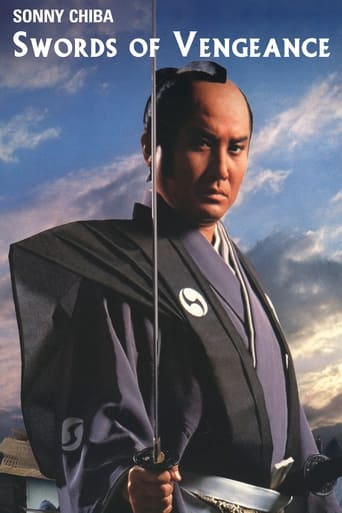
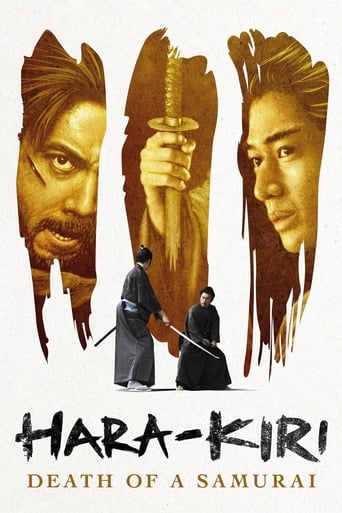
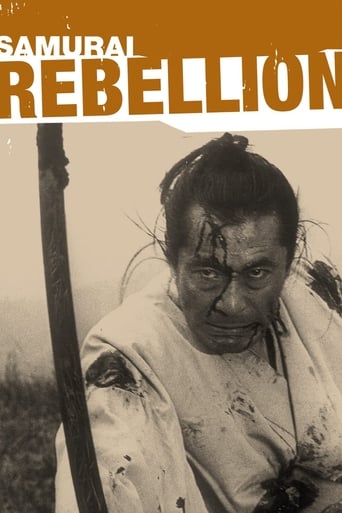
















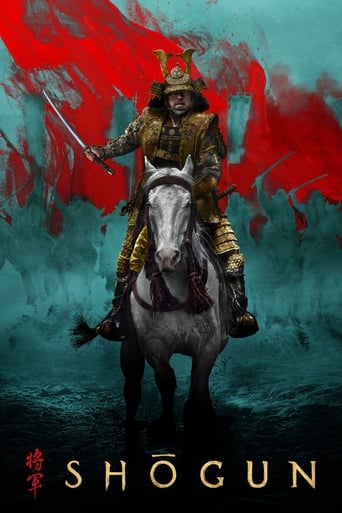
































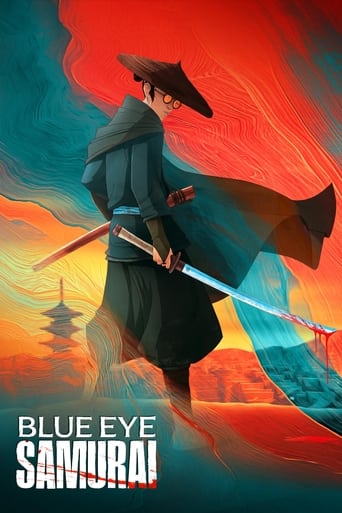
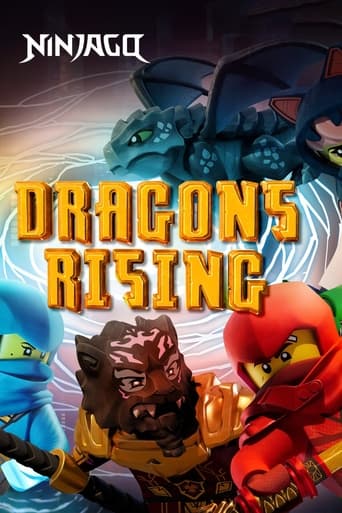

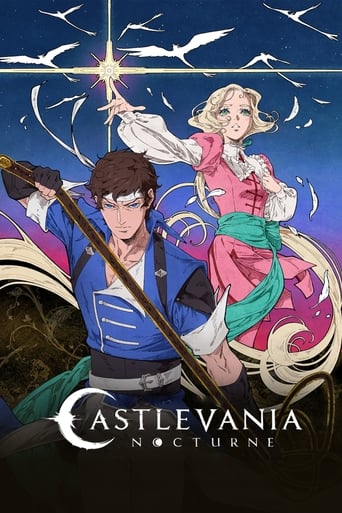



Kagemusha
Akira Kurosawa's lauded feudal epic presents the tale of a petty thief who is recruited to impersonate Shingen, an aging warlord, in order to avoid attacks by competing clans. When Shingen dies, his generals reluctantly agree to have the impostor take over as the powerful ruler. He soon begins to appreciate life as Shingen, but his commitment to the role is tested when he must lead his troops into battle against the forces of a rival warlord.